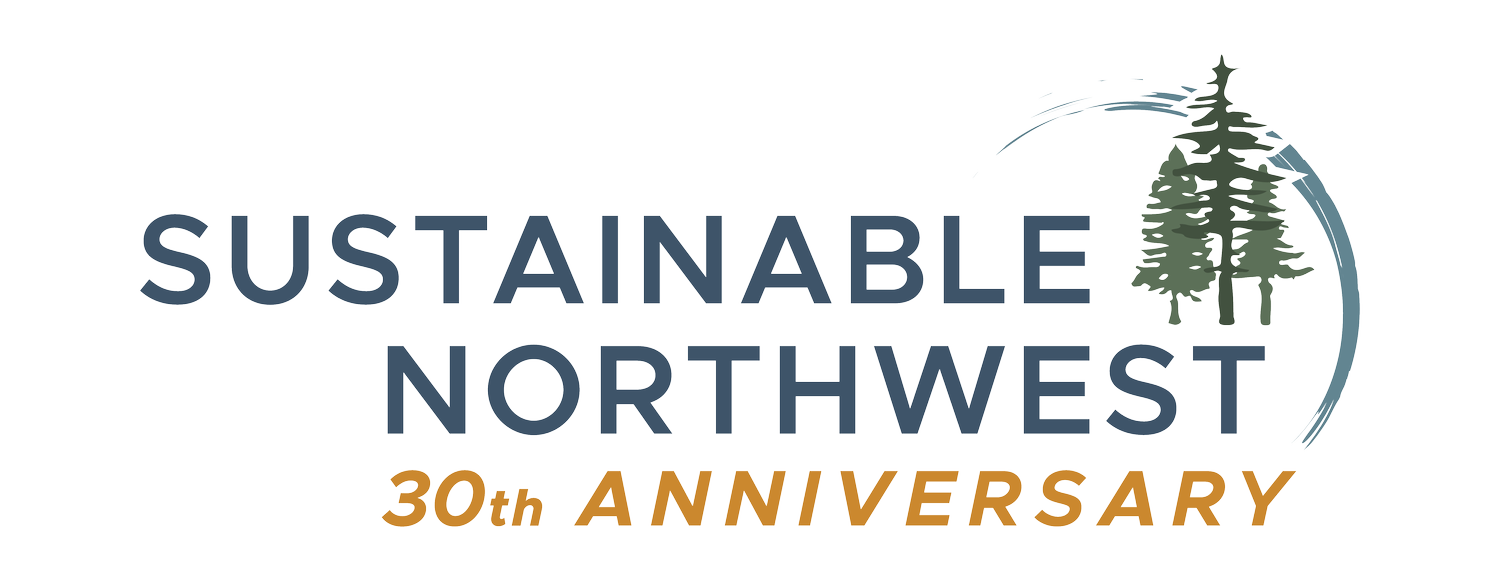The Making Energy Work Policy Committee Wraps Up Year-One and Celebrates Its Accomplishments
One year ago we endeavored to build upon the momentum of our growing Making Energy Work for Rural Oregon (MEW) coalition by launching a MEW Policy Committee to advocate for energy policies that support an equitable energy transition for rural Oregonians. This journey began by recruiting a diverse collective of 14 committee members from around our state who each bring valuable expertise and perspectives to this important mission. We then set off to identify three key policy areas to develop and support for the 2023 legislative session, ultimately arriving at community energy resilience, development of a state hydrogen economy, and modernization of PURPA Qualifying Facility (“QF”) contracts as our priority initiatives. This work led to the development of three bills introduced in the Oregon legislature this year, in partnership with key community partners and congressional sponsors, to achieve the following:
Providing funding to help all 36 Oregon counties develop an energy resilience strategy
Clearly defining renewable hydrogen in order to help Oregon develop a renewable hydrogen economy
Modernization of PURPA QF contracts for the benefit of community-scale solar energy projects
We are thrilled to announce that the legislature passed bills achieving the first two outcomes above – for community energy resilience and a renewable hydrogen economy – into law
The community energy resilience legislation provides first-of-its-kind funding for all 36 Oregon counties to develop an energy resilience plan. This can include development of microgrids and other improvements to capture federal funds, decrease costs, and improve reliability, which is particularly important to rural communities that face increasing disruptions to the grid from natural disasters such as wildfire. The work to define renewable hydrogen is important to ensure our transition to a clean energy economy is truly clean, utilizing clean power sources for renewable hydrogen. These important milestones could not have been achieved without the unwavering dedication and support of our MEW Policy Committee members, advisors, community partners and funding partners.
And while the efforts to modernize PURPA QF contracts for the benefit of community-scale solar energy projects did not ultimately pass this session, we remain committed to pursuing this important policy initiative with our committee members and partners in the next legislative session and beyond.
As we look forward to the 2nd year of the MEW Policy Committee, we remain steadfast in our determination to support a fair and just energy transition that benefits all Oregonians and secures a bright future for future generations. While today we celebrate the important milestones achieved in this legislative session, we also recognize that our work has only begun, and that there is much more to be accomplished.
We also offer our deepest gratitude and appreciation to the partners who’ve made this effort possible, including the Stolte Family Foundation and Climate Solutions. Through your continued support and the dedication of our members and partners, today’s accomplishments are only the beginning of what we will achieve.
Special thanks to each of our committee members and advisors:
Policy Members:
Joe Basile, Wallowa Resources (Wallowa County)
Amy Berg Pickett, Sunstone Energy (Deschutes County)
Stu Green, City of Ashland (Jackson County)
Lindsey Hardy, The Environmental Center (Deschutes County)
Meagan Hartman, Wisewood Energy (Benton County)
Ormand Hildebrand, PaTu Wind (Wasco County)
Nicholas Johnson, Textile Exchange (Lake County)
Les Perkins, Farmers Irrigation District (Hood River County)
Jennifer Rouda, 7Skyline / Navajo Power (Clatsop County)
Advisory Members:
Joshua Basofin, Climate Solutions (Multnomah County)
Angela Crowley-Koch, Oregon Solar + Storage Industries Association (OSSIA) (Multnomah County)
Dylan Kruse, Sustainable Northwest (Clackamas County)
Mike McArthur, Community Renewable Energy Association (CREA) (Sherman County)
Shannon Souza, Oregon Coast Energy Alliance Network (OCEAN) / Sol Coast Consulting & Design (Coos County)



